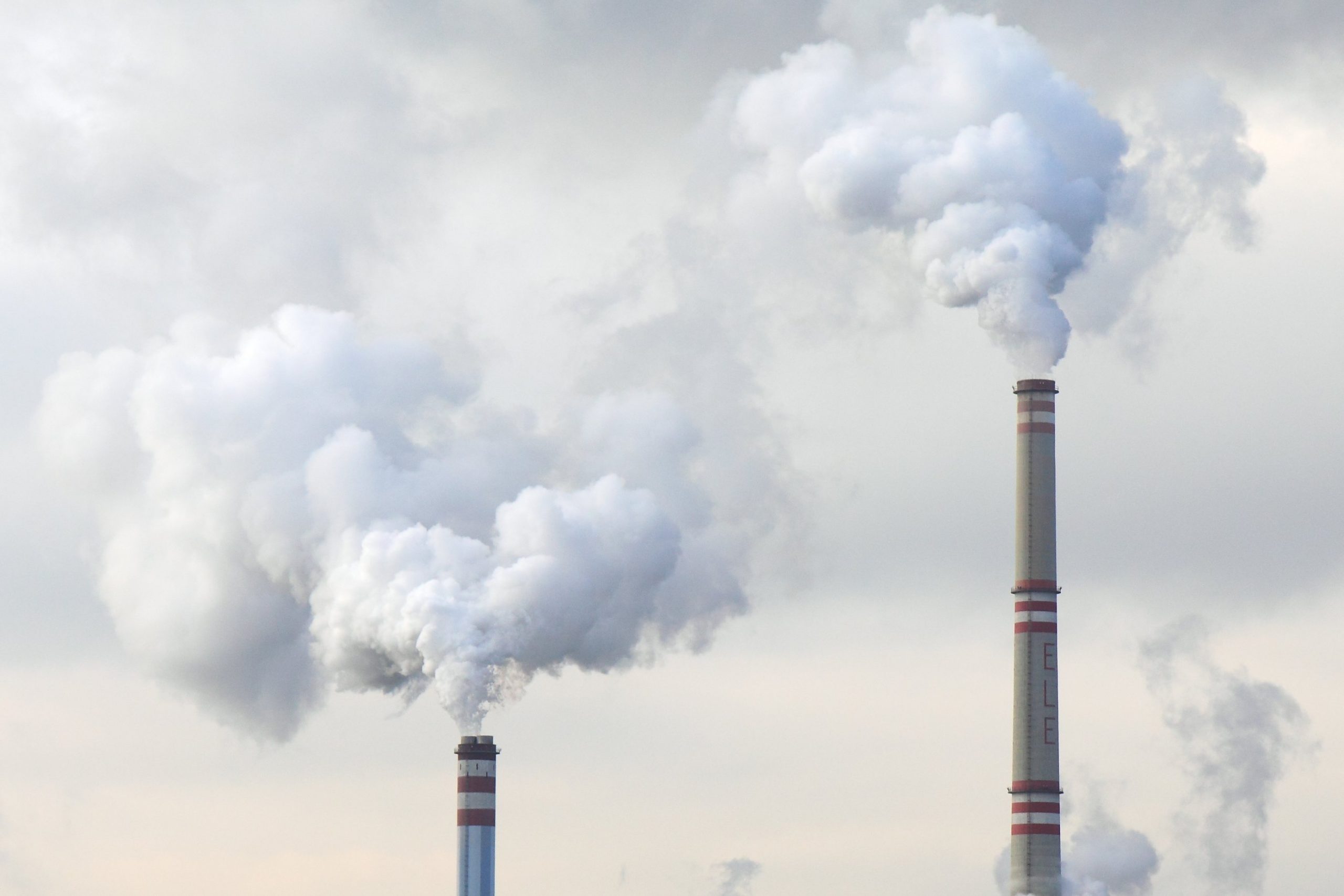
Why China ending its construction of overseas coal-fired power stations could be a big issue for world politics.
In a pre-recorded speech to the UN General Assembly on September 22nd, Chinese President Xi Jinping made the surprise announcement that Beijing will stop building coal-fired power stations abroad, a move that could have major economic and geopolitical ramifications across the world. “China will step up support for other developing countries in developing green and low-carbon energy, and will not build new coal-fired power projects abroad,” Xi told the world body.
However, questions remain over the details of China’s pledge, and whether Xi meant China would stop funding overseas coal-based energy production or merely that Chinese firms would stop building them abroad. Chinese officials have provided few additional details since Xi’s speech. But several senior politicians from across the world appear to have interpreted Xi as meaning that China would end its financing of foreign coal-fired power stations, joining Japan and South Korea that also recently made such pledges. The three countries reportedly accounted for more than 95% of all foreign financing for coal-fired power plants.
In this first edition of CEIAS Considers, I spoke to experts from the CEE region to get their thoughts on why China’s announcement on coal could be a big issue in world politics.
 Richard Q. Turcsanyi
Richard Q. Turcsanyi
Program Director at CEIAS
China’s announcement seems like a good step towards addressing climate change, although many more steps will need to follow, naturally. Various Chinese companies are still burning lots of coal at home and abroad and thus China’s impact is massive. It remains to be seen whether more steps will follow.
At the same time, if China will act on this promise (which I think is likely, as it was given by its leader very officially), it has a potential to improve China’s image internationally. According to our survey in 13 European countries from autumn 2020, China’s impact on the global environment was the most negatively perceived aspect of Chinese international interaction – even more than its impact on democracy or its military. Similarly, the most preferred policy option among the European public was to engage China in addressing global issues such as pandemics of climate change. This signals that the European public takes environmental issues very seriously and it recognizes China’s important role.
If these findings are accurate, China might be able to score some points among the public in Europe if it is seen as contributing towards addressing climate change with its fair share. As such, this may be a low-hanging fruit for the Chinese government in terms of improving relations with the West, which doesn’t impact the political standing of the CCP at home.
We should remain cautious, however, and observe the actual policies. A lot will also depend on how China behaves at the COP conference in Scotland, and there are contradictory indications whether China will play a positive role or not.
Nikita Odintsov
Associate researcher at the Institute of International Relations Prague
Last week was marked by two important events. One piece of news came from China, whose President Xi Jinping announced that his country would stop building new coal projects abroad and, instead, will “step up support for other developing countries in developing green and low-carbon energy”. Thus, a year after China banned imports of coal from Australia (America’s closest ally in the Eastern hemisphere), Beijing looks set to deprive its coal miners of a considerable market in Third World countries. Geopolitics aside, China’s pledge overshadowed another important piece of news from Denmark, where one of the world’s largest wind turbine producers, Vestas, announced the closure of its three European factories.
This is not good news for Europe, which is pushing the “Fit for 55” package despite worries about skyrocketing energy prices. Besides tackling climate change, support for green technologies should advance European economic and technological development. Nevertheless, the Old Continent is losing this technological race to China, the largest emitter of CO2 in the world.
In the past 15 years, China has become the largest producer of wind and solar power, and is now the largest investor in renewable energy capacity. Furthermore, about 90% of rare earth elements are produced in China; 50% of cobalt is refined there; and it produces the cheapest electrolyzers in the world. To make European manufacturing of green technologies more profitable, European companies must expand their sales markets abroad. Nevertheless, because of Chinese dominance, their market share is small and might decrease further.
The manufacturing and deployment of clean energy technologies are crucial for China to become a global technological leader in its transition to slower but higher-quality economic growth. Nevertheless, it is still building coal-fired power plants, and the share of coal in the country’s primary energy consumption is above 50%. Xi Jinping’s previous pledge to make China carbon-neutral by 2060 is yet to be formalized in binding legislation. However, we should keep in mind that we are talking about a country that is the largest energy consumer and produces roughly half of the global steel, cement, and aluminum for domestic needs and exports.
Therefore, the Chinese promise to stop funding coal projects overseas should be seen as an attempt to concentrate the supply chain of ‘clean technology’ and prevent Western companies from expanding to Third World energy markets. Against this background, Vestas’ decision to close its factories only shows how bizarre European energy policy has become. While the EU is phasing out coal, together with other countries it will buy Chinese clean energy products, including windmills and solar panels, made with this dirtiest power source.
Unless the EU fundamentally changes its approach to energy and climate security and leaves green ideology out of its strategic thinking, it might well be pushed to the sidelines of the international political economy.

Mirela Petkova
Freelance researcher and energy data researcher for Energy Monitor, Bulgaria
The global tide against coal financing has been turning faster than ever and it has not spared multibillion-dollar Chinese-backed projects. Most notably, coal-fired power plants, such as Kenya’s US$2 billion Lamu and Egypt’s US$4.4 billion Hamarawein coal-fired power stations, have been mothballed in the last year due to ecological concerns. Despite such developments, Chinese lenders were still expecting to provide the financing for a pipeline of over 20 GW of overseas coal capacity that is under construction and 13.5 GW in the planning stage.
The future of such projects is now increasingly uncertain, as during his remarks at the 76th United Nations General Assembly, Xi Jinping announced that China is set to stop financing new coal-power projects overseas.
The Chinese authorities have yet to clarify whether these commitments include projects that are under construction, projects that are already active but not under construction, and projects that include modernization of existing coal-powered plants. Furthermore, it remains unclear whether the pledge covers both government financing of overseas projects, as well as investments by Chinese companies.
China’s decision is a major step forward for global climate and development goals, but it also has dire consequences for certain regions that are overly dependent on Chinese money for coal. One of the best examples in this regard are the Western Balkans, where China has stepped up its presence in the last decade precisely through heavy investments in infrastructure and energy projects, like coal plants. While China has had an increasing engagement with the wider Central and Southeast Europe region, coal financing has taken part solely in the Balkans. This is not as surprising, as coal remains king in the region: as of 2019, 63% of the electricity was sourced from lignite.
Major international development banks active in the Balkans, such as the European Investment Bank and the European Bank for Reconstruction and Development, said they will no longer finance coal projects as long ago as 2013 and 2018, respectively. Against this backdrop, Chinese financial institutions have been welcomed as investors and have become the only stakeholders willing to finance new coal projects in the Balkans.
Chinese-backed projects have been concentrated in Bosnia and Herzegovina, Montenegro, and Serbia. Those are the modernisation of the existing Pljevlja plant in Montenegro; the construction of Stanari power plant and unit 7 of the Tuzla power plant in Bosnia and Herzegovina; installation of pollution control equipment in Kostolac B1 and B2, and construction of Kostolac B3 unit in Serbia. Besides that, Xi’s announcement sounded a death knell for several projects that could have possibly attracted Chinese financing or construction works in the near future, such as Banovići, Ugljevik 3, and Gacko power plants in Bosnia and Herzegovina.
Such projects have posed a real threat to countries’ decarbonization efforts and their citizens’ health. Xi’s announcement could help speed the end of coal dependency in one of Europe’s most polluted regions and kickstart the energy transition, as finding investments for coal energy will become increasingly difficult for local stakeholders.
But talk isn’t action as China is trying to juggle emerging responsibilities under the net-zero goal, on one hand, and geoeconomics, on the other. On a deeper level, the question that comes forward is what China’s future engagement in the region might look like, as Chinese renewable energy and green technology companies are yet to build a presence in the Balkans that is as strong as their coal-related counterparts. As concrete and coal have been China’s main trampolines for inroads in the region, it remains to be seen whether China’s political influence will wither or benefit from the pledge.
Further Reading:
- DW: Will China’s move against coal power improve its image in EU?
- The Conversation: China will no longer build overseas coal power plants – what energy projects will it invest in instead?
- Voice of America: China Vows to Stop Building Coal Plants Overseas, But What Does That Mean?
- Science Magazine: Environmentalists hail China’s vow to stop building coal-fired power plants abroad








